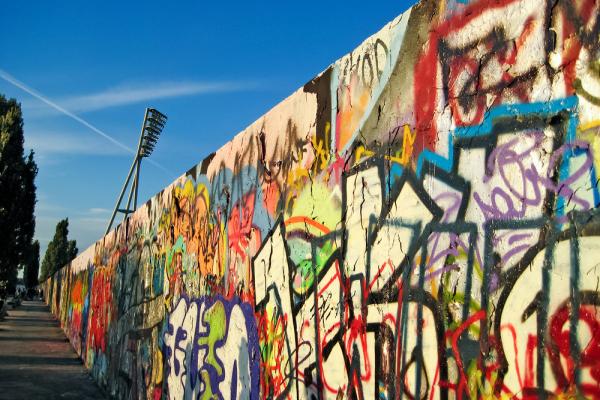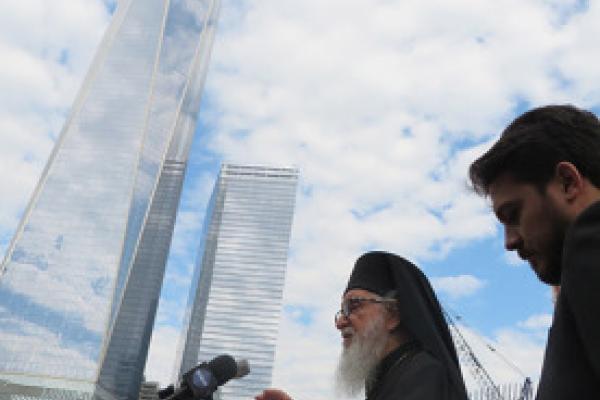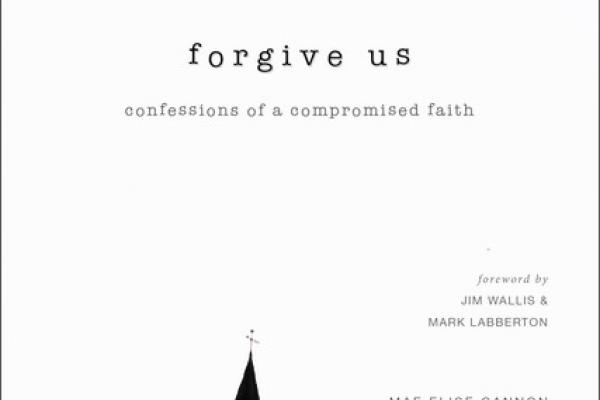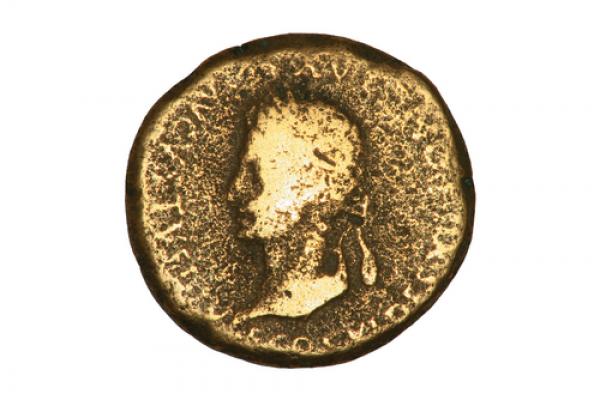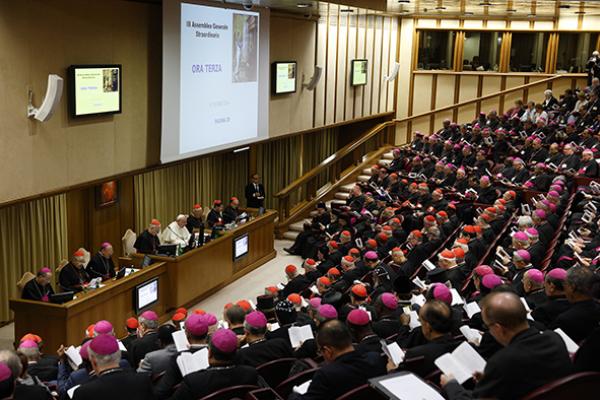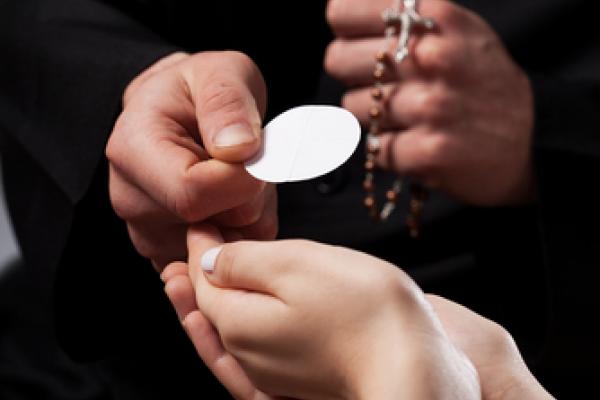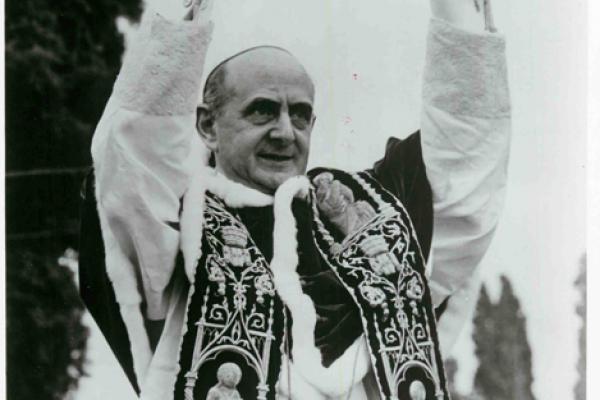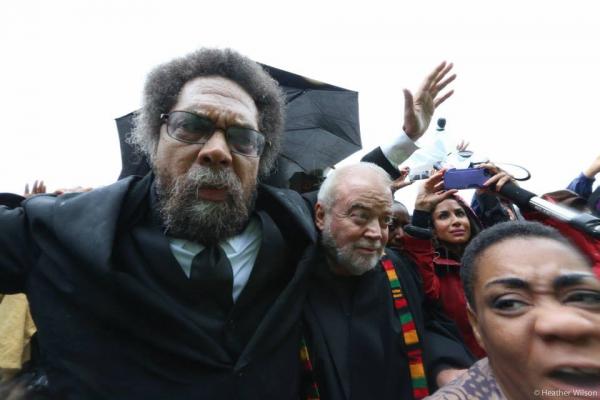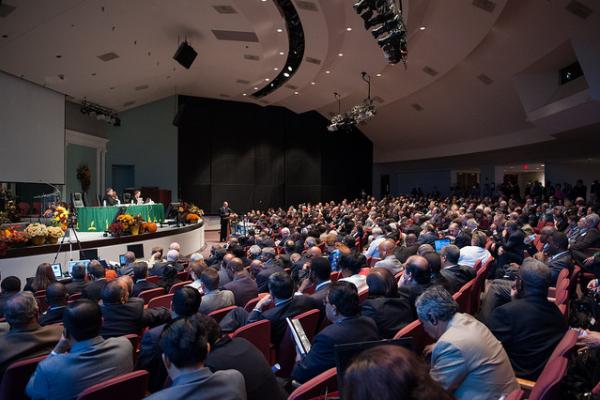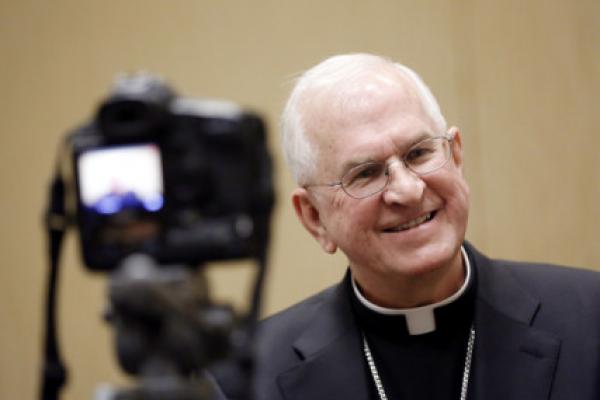Just over fifty-three years ago, a huge wall was built, a mighty fortress – a wall around East Berlin, a wall to keep out and a wall to keep in. This wall isolated people and forcefully molded them into a single, straight, dreary one-dimensional way of living. The wall represented an oppressive system without cracks, without breaks, without life.
Almost 500 years ago, a monk by the name of Martin Luther felt the pressures of another oppressive system, one in which a person was never sure of God or God’s mercy, one in which a person could even pay to climb the stairway to heaven quicker and easier. In many aspects, the church itself had become a fortress, dictating who was in and who was out.
Every system, every culture, every community risks succumbing to the temptation of shutting borders and protecting an identity. We are quickly seduced into the illusion of absolute control and power. Brick by brick, wall by wall, suspicion by suspicion, power is built, oppression takes hold. We construct an identity, a security, a world. We construct our own way to heaven. (Or is it to a ghetto?)
Who or what can defeat and break the walls, the towers, the fortresses we construct? Who or what can overcome oppression in the land? Where do we turn when creation shakes and societies are in an uproar?
Leaders of a Greek Orthodox church that was destroyed during the 9/11 attacks on the World Trade Center broke ground on a new St. Nicholas Greek Orthodox Church that will overlook the 9/11 Memorial.
The new domed building is scheduled to open in 2016, the same year as the church’s 100th anniversary. The church has raised $7 million of about $38 million needed.
Plans to rebuild the church were stalled by a dispute with the Port Authority of New York, which is in charge of overall rebuilding efforts at Ground Zero. Under an 2011 agreement brokered by New York Gov. Andrew Cuomo, the church agreed to drop its lawsuit in return for building at a larger site.
On Oct. 18, government and church leaders joined on a concrete platform surrounded by steel foundation beams and orange construction netting to break ground for the church, designed by renowned Spanish architect Santiago Calatrava.
Patrick J. Foye, who was named earlier this year as executive director of the Port Authority, said the future building would be “an iconic house of worship,” comparable to the building of St. Patrick’s Cathedral in midtown.
I attended Catholic school for one year as a child. My second-grade year in Philadelphia’s St. Athanasius left me with a strong sense of the mystery of the church. The most mysterious space there was the confessional booth. I wasn’t allowed to enter because I wasn’t Catholic, so I just sat and watched others enter with pinched brows. Then they would exit with peace painted over their faces.
There is a scene in the book Blue Like Jazz where author Donald Miller sets up a confessional box in the center of the Reed College campus. But Miller’s confessional worked in reverse. Students of Reed, which is known as the most liberal campus in the country, entered the confessional booth with curiosity, cynicism, skepticism, or worse — to disprove this thing called Christianity. But what they encountered upon entry was disarming — even healing. Rather than prompts to confess their sin, Miller sat on the other side of the veil and confessed of the sins of the church. This was a revolutionary act in the context where, according to Gabe Lyons and David Kinnaman’s modern classic, UnChristian, the general consensus about Christians is decidedly negative.
“Is It Lawful to Pay Taxes?”
“Is it lawful to pay taxes when they prop up Caesar’s rule?”
So some people asked of Jesus, wanting him to seem a fool.
Saying “no” would be sedition; saying “yes” would be a sin.
Jesus changed the conversation, calling them to look within.
“Find a tax coin in your treasure; see the image that it bears.
Give to Caesar what is Caesar’s. (Give to rulers what is theirs.)”
Yet he pressed on with his message; “Give to God what is God’s own.”
We who bear our Maker’s image worship God and God alone.
The tug-of-war at the Vatican over calls for the Catholic Church to be more open to gays and cohabiting couples intensified Oct. 16 as conservative bishops sought to rein in or renounce draft language they feared might condone lifestyles not in accord with church teachings.
The lobbying at the two-week summit of church leaders — a synod on family life that is set to wrap up Saturday with a final report — was epitomized by the retranslation of a headline from “welcoming homosexual persons” to “providing for homosexual persons.”
In the text, the line “Are we capable of welcoming these people, guaranteeing to them a fraternal space in our communities?” was changed to, “Are we capable of providing for these people, guaranteeing … them … a place of fellowship in our communities?”
The change in the English version was not made in the Italian original, where the term “accogliere,” which means “to welcome,” was kept.
The Vatican’s chief spokesman, the Rev. Federico Lombardi, said the first document was only a “transitory text” and suggested there were errors in translation.
The Blood of Christ will not be offered during Mass. The Host will be placed in the hands, not on the tongue. And the faithful should not hold hands while reciting the “Our Father.”
These are but a few of the guidelines the Diocese of Fort Worth — not far from the Dallas hospital where three Ebola cases have been diagnosed — has sent to its parishes to calm fears about the deadly disease and to prevent the spread of flu.
While the diocese is perhaps the first in the U.S. to send around such a memo thanks in part to Ebola, such restrictions are common during flu season in Catholic and other churches that offer Communion.
“It’s the same guidelines we have used in past years,” said Pat Svacina, communications director for the Diocese of Fort Worth. “This is just a normal thing. There is no panic whatsoever.”
As he wraps up a Vatican meeting marked by sharp debates over sex and morality, Pope Francis on Oct. 19 will honor one of his most controversial predecessors by beatifying Pope Paul VI, who is most famous for reaffirming the Catholic Church’s ban on artificial contraception.
Beatification puts Paul one step shy of formal sainthood. The move might seem out of step with Francis’ pastoral approach given that Paul’s birth control ruling, in the 1968 encyclical “Humanae Vitae,” set the stage for the culture wars that overtook Catholicism after Paul died in 1978.
A wide swath of Catholics, especially in the U.S. and Europe, were furious over Paul’s decision. They were convinced that the ban would be lifted and that Paul was shutting down the reforms that had begun a few years earlier with momentous changes adopted by the Second Vatican Council.
Many conservatives, on the other hand, hailed “Humanae Vitae” for reasserting traditional doctrine, and the division foreshadowed the deep splits that have played out even in this month’s high-level synod in Rome — a polarization that Francis says he wants to overcome.
Yet Francis is trying to accomplish that goal by focusing not so much on “Humanae Vitae” but on Paul VI’s many other groundbreaking, though often overlooked, contributions:
I and many other faith leaders came to Ferguson, Missouri, on Sunday and Monday because of Michael Brown—an 18-year-old black teenager who, though unarmed, was shot and killed by a white police officer on August 9. My first thoughts when I heard the news were about my 16-year-old son Luke. I knew how unlikely it would be that this would ever happen to my white son in America.
Coming to Ferguson was about Michael Brown. But Ferguson has also become a parable for our nation. Jesus often told parables. A parable is just a story, but often one with a simple but important point.
The Ferguson parable is simply this: black lives in America are worth less than white lives—especially in our criminal justice system. And the parable of Ferguson rings true around the nation, with the many young black men who were and have been assaulted, shot and killed before and after Michael Brown.
Seventh-day Adventists opted for a middle-way approach on the divisive issue of women’s ordination on Oct. 14, kicking the question to next year’s worldwide meeting without taking a firm stance either for or against women’s ordination.
Next year’s debate will come nearly 100 years after the death of Adventist matriarch Ellen White and could settle decades of disagreement over whether women should be allowed to be ordained in the 18 million-member church she co-founded.
The church’s Annual Council voted to refer the matter to the 2015 General Conference Session in San Antonio. Under the proposal, regional church bodies would be able to decide whether to ordain women pastors.
After two days of fighting between happy liberals and angry conservatives, the Vatican on Oct. 15 dispatched a leading moderate from the U.S. church to tell both sides to temper their expectations about impending changes in church doctrine.
Archbishop Joseph Kurtz of Louisville, Ky., president of the U.S. Conference of Catholic Bishops, stressed that a working document on family issues released on Oct. 13 is simply that — a draft document still subject to amendment by about 200 bishops and lay delegates meeting at Vatican City.
The midpoint report from the two-week Synod on the Family raised expectations that the Catholic Church was poised to revolutionize its teaching on homosexuality, divorce and cohabitation, saying gays and lesbians have “gifts and qualities” to offer the church.
On Oct. 15, Kurtz, flanked by Spanish Cardinal Lluis Martinez Sistach and Italian Archbishop Rino Fisichella, urged both sides to take a breath.
